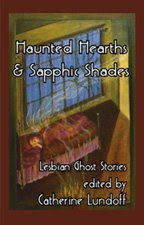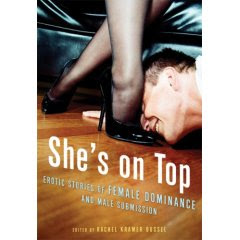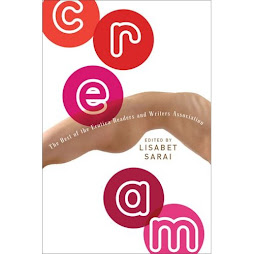Now that you’ve let your first
draft sit for a while it’s time to turn it into a second draft. Some writers
produce such a clean first draft that the second draft goes quickly then all
they have to do is copy edit and submit. I am not one of those writers. I wish
I were, but it isn’t meant to be. Night Creatures took five drafts, but I had
some unique problems that I’ll discuss later. The first draft is the time to
throw everything onto the page. The second draft is when you cut excess or add
depth and bring the story arc into its final shape. If you see copy edit level problems,
of course fix them, but don’t get bogged down in that yet.
In
each scene, if your characters
have moved to a different location, have you described where they are
early on to anchor your reader? Good! But are you giving me too much
detail?
Not good. Your imagination might have constructed an amazing coffee
house with
the quirkiest baristas on the planet and fascinating regulars, but
confession
time – as a reader, I scan over this kind of stuff if it goes on too
long. Give
the reader a quick impression, not a blueprint. It’s an amazing trick of
the
human mind that with only a few details our imaginations can fill in the
rest
of the scene. Make your words count. Load them with atmosphere. Blonde
wood and steel evoke not just décor but also a soundtrack and
vibe, and it's different than what you'd imagine if I'd called the place
dark and cozy.
Have
you used at least three
senses to make a scene come alive? Think about the coffee shop. Since
your
characters are probably talking you already have hearing, but add little
touches such as an ambulance going by outside or the clatter of dishes
as a
table is cleared or that weird swooshy sound the milk steamer makes. If
you’ve described the setting, you’ve already evoked seeing. Give it
dimension by letting your characters react to what they see. Maybe they
feel
self-conscious when the teenagers two tables over whisper and giggle, or
your characters are self-conscious teenagers who whisper and giggle.
Since it’s a coffee shop it probably smells like coffee, but what else?
If it's raining outside, coats are probably giving off that damp wool
smell. If you're out on a patio, you could smell traffic fumes or the
herbal scent of a planter or even the doggy smell of the Golden Lab at
the feet of the woman two tables away.
Read through your draft to make sure your characters are consistent. Yes,
they change over the course of the story, but there has to be a progression. In
the novel Adventures of Huckleberry Finn, Huck is comfortable
with slavery at the beginning of the story. His entire world tells him is right
and he doesn’t question it. By the end of the story, he’s decided that even if
it means he’ll go to hell, he’s not okay with slavery and he believes,
strongly, that Jim is a man, a full human being, the same as him. That is a
huge change. But from the opening lines to the end of the story, Huck Finn is a
consistent character. Every action he takes and bit of dialog is absolutely
believable as something Huck Finn would say or do.
Everyone comes from somewhere. They
don’t spring to life as full grown adults when your story begins. (Well, yes,
they do, since you created them, but to make them seem real, you have to
pretend they existed before you started recording their story) They have a past
that made them who they are and that’s probably important info to share with
your reader. However, beware the dreaded info dump! Cramming all the backstory
into the first chapter is a sure way to bore your reader. Insert clues to your
character’s past along the path of the story and reveal those things only at
the point where they matter. Occasionally this will call for a longer passage,
but if you can keep it to a line or two you’re better off, because long
passages can drag your story to a standstill and it’s harder to overcome
inertia than it is to maintain forward momentum. (Law of physics as applied to
storytelling)
Foreplay. I don’t mean with your characters (although that’s fun stuff to read) I mean your readers. Don’t just toss them into a sex scene. Seduce them first. Use your sensory writing to evoke a mood then mercilessly push buttons to get them hot and bothered. Tease them. Manipulate them. Make them feel the warmth of a lover’s breath just under their ear so they’ll shiver. Make them want a lingering touch next. Take your time. Do a thorough job of it. It will leave them with the impression of a great sex scene even if you never describe a sexual act.
While you were writing your first
draft, your subconscious was lurking in the background. Occasionally, while you
were distracted, it slipped ideas into your work. Sneaky. By the time you
finished your first draft, you may have become aware of those ideas. Many works
in erotica are voyages of personal discovery. The protagonist chooses to find
what they want and seizes control of their sexuality and life. That’s an
empowering message. I’ve also read stories that are about forgiveness, loss,
faith, love, and despair. You name an aspect of the human condition and it can
be addressed in erotica. Think about your work from the high-level view. A
literary viewpoint. Do you detect an idea or theme? Think about ways to enhance
it in the second draft (if it interests you).
Reflecting on your work will give you a lot to tackle in your second draft, and expanding on the ideas your subconscious seeded in the first draft will add depth to your story.
Reflecting on your work will give you a lot to tackle in your second draft, and expanding on the ideas your subconscious seeded in the first draft will add depth to your story.
I knew before I finished the first
draft of Night Creatures that I had
to move a key scene. Talk about painful. If only it were as simple as
cut and paste. But no, of course not. Events happen in sequence. One flows into
another. By changing the timeline, I had to go through each scene and ask ‘do
they know this yet?’ If not, I had to eliminate the reference. In the
first draft, things can be wrong. Typically in the second draft, errors are
fixed, but in my second draft, I was creating potential errors all over
the place.
As
if I hadn’t made things hard
enough, I also decided to delete two characters from the story. A cast
of thousands
may be impressive on a big movie screen but too many characters are
confusing as hell on the page. Although
I already had a limited cast, by eliminating the additional characters I
tightened the focus on the main two. A reader once commented that my
stories sometimes make her feel like she'd been shoved into a wardrobe
with two people and the air is running out. I take that claustrophobia
as a compliment.
Deleting characters can cause huge plot problems. Let me restate that. Deleting characters should cause huge plot problems. Everyone on the page should be there for a specific purpose, like cogs in a machine. If you can remove one and nothing changes, they shouldn't have been there in the first palce. (I'm talking about main and secondary characters here, not the extras in the background) When I removed the two from mine, a key part of the plot suddenly didn't happen, so I had to transfer their actions to one of the remaining characters. Different characters have different motivations even if they do the same thing. (For example: I eat sashimi because I like it. R will only eat it when it’s served to him and it would be rude to refuse it.) That meant, yes, exploring the motivations of the character and making sure they made sense. That was a lot of work, and typically the kind of stuff you do as you're writing the first draft. Maybe instead of calling this one my second I should have called it First Draft version B.
Between changing the sequence of events and eliminating characters, the second draft left me with a lot of work to do. (Thus the five drafts.) I wouldn’t have made those changes if I hadn’t strongly felt they were necessary. Unfortunately, I can’t explain to you why I felt they had to be made or how you might sense that your story arc needs that kind of revision. (I hope for your sake that it never does. This is why I often say "This is what I do, but I don't recommend it to anyone.") Readers might feel that the way a story was told was the only way it could have unfolded, but writers know that there were many possibilities. More than one path can lead to the same destination. Part of choosing the path is talent, part of it is craftsmanship, all of it is the mysterious (wonderful) process of creativity.
Deleting characters can cause huge plot problems. Let me restate that. Deleting characters should cause huge plot problems. Everyone on the page should be there for a specific purpose, like cogs in a machine. If you can remove one and nothing changes, they shouldn't have been there in the first palce. (I'm talking about main and secondary characters here, not the extras in the background) When I removed the two from mine, a key part of the plot suddenly didn't happen, so I had to transfer their actions to one of the remaining characters. Different characters have different motivations even if they do the same thing. (For example: I eat sashimi because I like it. R will only eat it when it’s served to him and it would be rude to refuse it.) That meant, yes, exploring the motivations of the character and making sure they made sense. That was a lot of work, and typically the kind of stuff you do as you're writing the first draft. Maybe instead of calling this one my second I should have called it First Draft version B.
Between changing the sequence of events and eliminating characters, the second draft left me with a lot of work to do. (Thus the five drafts.) I wouldn’t have made those changes if I hadn’t strongly felt they were necessary. Unfortunately, I can’t explain to you why I felt they had to be made or how you might sense that your story arc needs that kind of revision. (I hope for your sake that it never does. This is why I often say "This is what I do, but I don't recommend it to anyone.") Readers might feel that the way a story was told was the only way it could have unfolded, but writers know that there were many possibilities. More than one path can lead to the same destination. Part of choosing the path is talent, part of it is craftsmanship, all of it is the mysterious (wonderful) process of creativity.
What are the areas you concentrate
on in a second draft? Do you have bad habits you try to catch?
Next time: editing
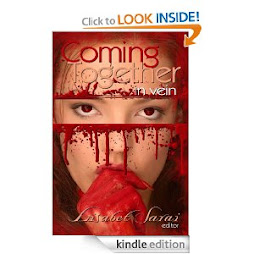

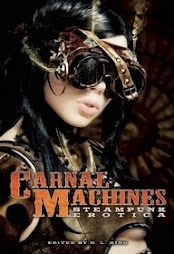

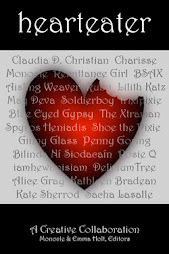
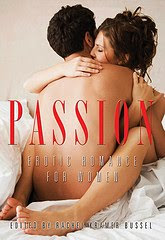
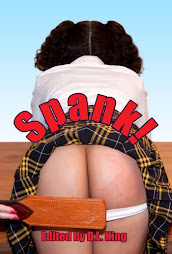



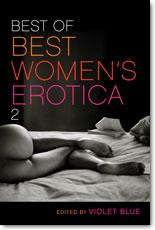

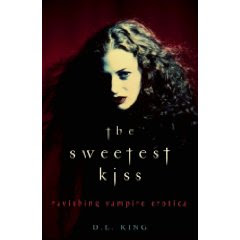


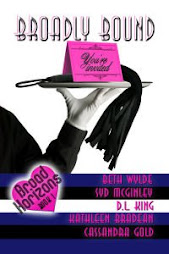.jpg)
